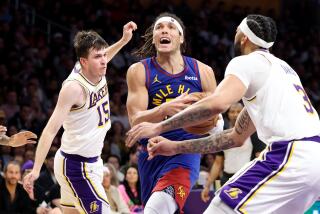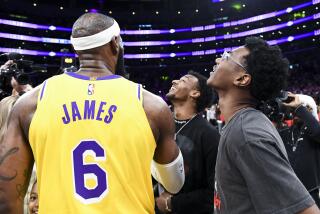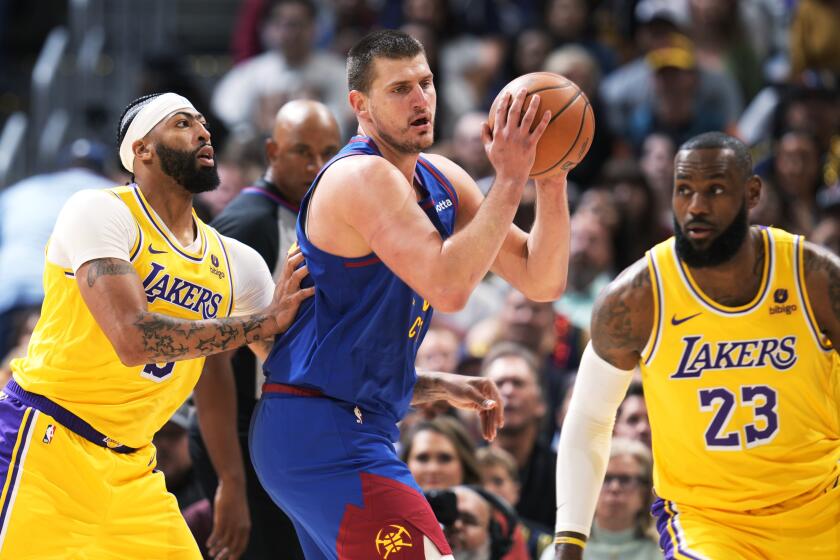Attorney Sues 5 NFL Rookies
A Los Angeles attorney has filed lawsuits against five NFL rookies in an effort to recover about $115,000 he contends he loaned the players while they were in college.
The suits are filed in Los Angeles County Superior Court by attorney Ray Newman, and name among the players Atlanta Falcon defensive back Deion Sanders.
The Atlanta Journal-Constitution reported the lawsuits today in a copyrighted story. The newspaper said the case has been assigned to Judge Robert Cardenas, but a court date has not been set.
Newman said Los Angeles attorney Robert P. Mandel contacted him on Sanders’ behalf, seeking documents relating to the suit.
Sanders declined comment on any specifics of the case.
The other defendants are Hart Lee Dykes of the New England Patriots, Eric Hill of the Phoenix Cardinals, Broderick Thomas of the Tampa Bay Buccaneers and Derrick Thomas of the Kansas City Chiefs.
Newman, who is registered as an agent with the National Football League Players Assn., told the newspaper he never had a contract or an agreement to represent the players.
“Whenever they needed money, I would loan them the money,” Newman said. “I’ve asked for the money back and they won’t even respond. Am I supposed to walk away? I didn’t do anything wrong. They made debts and they should pay for it.
“I felt some of the black kids were getting used,” said Newman, who is black. “I was going to be different. Instead, they were smarter than I thought. They were just playing a con game.”
According to Newman’s suits, Derrick Thomas ran up a debt of $35,160, followed by Sanders with $28,460; Hill with $26,462; Broderick Thomas with $17,067 and Dykes with $7,900.
Broderick Thomas acknowledged that he owes Newman $3,000. He said the players never conspired to dupe Newman, and were concerned about recruiter Terry Bolar, who has solicited players for various agents.
David Berst, assistant executive director of enforcement for the NCAA, said the NCAA probably won’t pursue the matter.
“If we can find out about it while they’re still playing, we declare the athlete ineligible,” Berst said. “But it’s extremely difficult because almost always it’s a secret between the agent and player.”
More to Read
Get our high school sports newsletter
Prep Rally is devoted to the SoCal high school sports experience, bringing you scores, stories and a behind-the-scenes look at what makes prep sports so popular.
You may occasionally receive promotional content from the Los Angeles Times.






